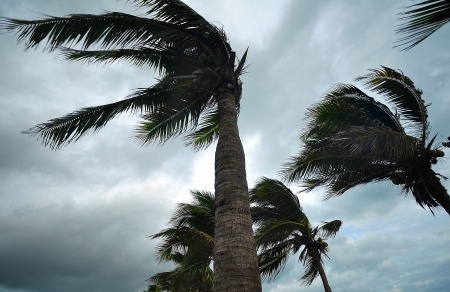Basic Measures: Preparing your Manufactured Home For Hurricane Season
April 28, 2016

Today’s manufactured homes are built to meet stringent construction, safety and installation standards, which have been developed not only to ensure occupant safety and health but also to minimize damage from storms. This basically means that, in a hurricane, modern manufactured homes perform just as well as or better than some of their site-built counterparts.
However, the inherent vulnerability of most site-built and manufactured homes to high-wind events, coupled with ordinary wear-and-tear that negatively affects a home’s resistance to strong winds, torrential rains and storm surge, makes these homes susceptible to damage from hurricanes.
While the 2016 hurricane season is expected to have “approximately average activity,” according to a recent forecast update released by the top meteorologists from Colorado State University, you can’t count on the kindness of Mother Nature. Therefore, you need to know what to do before a hurricane strikes your location. Below you can find the most basic pre-storm measures you should take to prepare your manufactured home for hurricane season.
Check Your Anchoring System
Although the new manufactured homes are installed with proper anchoring to withstand strong winds, existing homes should be retrofitted with tie-down systems to keep them from shifting and prevent damage due to high winds. If you don’t know whether or not your manufactured home meets HUD’s installation standards along with the manufacturer’s anchoring specifications, you should have your home inspected by a certified technician. This professional will check for loose tie-downs, make sure that all straps, ground anchors and stabilizer devices/plates have been properly installed and recommend certain improvements, such as replacing damaged straps and/or ground anchors or installing longitudinal tie-down systems, if necessary.
It’s also important to look for improperly installed awnings, shutters, carports, skirting (the enclosure around the base of your manufactured home) and other structures attached to your house. Any element that isn’t properly attached can fail in high winds, potentially damaging your house and posing a threat to other buildings nearby. In addition, you should properly secure or bring in outdoor furniture, mailboxes, lawn equipment, grills, antennas, trash cans and any other items that may be easily carried away by hurricane winds.
Install Hurricane-Resistant Features
Installing hurricane-resistant features like asphalt shingles, roofing reinforcement, impact-resistant windows, hurricane shutters and storm panels is another thing you can do to prepare your manufactured home for hurricane season.
Before installing hurricane protection features, we advise you to look for residential hurricane mitigation programs in your area. For example, the Federal Emergency Management Agency (FEMA) together with local organizations and hurricane mitigation inspectors has developed several programs to help homeowners identify potential risks, prevent damage, cover the cost of improvements and increase the resale value of their homes.
Purchase Manufactured Home Insurance
Though manufactured home insurance cannot help you prepare your manufactured home for hurricane season, it protects your investment by promising to repay some or all of the cost of repairing your home if it gets damaged during a hurricane. Today, many insurance companies are willing to offer coverage for manufactured homes and attached structured like porches and carports.
If you already have manufactured home insurance, review it to see exactly what it does and doesn’t cover. If you have no insurance, you should move fast to get coverage before the hurricane season begins. Since having impact-resistant features installed may help you qualify for a discount, make sure you list all these features when requesting home insurance quotes.
For additional advice on how to prepare your manufactured home for hurricane season, please visit the official web portals USAGov, CDC, Ready and FEMA, or get in touch with your local emergency management agency. For advice on how to finance the purchase of a manufactured home, we invite you to contact our knowledgeable, experienced and friendly financial advisors, who are ready to answer any questions or concerns you may have.
